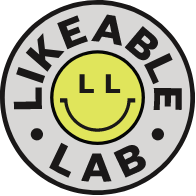Does your business have a website?
If so, this article is for you.
You see, we’ve seen a fair few websites in our time, and there are a couple of things we’ve noticed…
We’ve noticed that there are three types of people who care about the success of your website:
- You (representing the business)
- Your web-designer
- Your audience
And we’ve also noticed that each of these people have particular needs.
For example, you (your business) needs a website that’ll attract sales; and your web designer needs a beautiful website that’ll look great in their portfolio (and there’s nothing wrong with either!)
But your audience? Well, they have different needs – and the sad thing is that they’re often forgotten about entirely (probably because they’re not at the meeting with yourself and your web-designer).
What your audience needs (from your website)
I’m sure you’ll agree that this isn’t exactly rocket science…
Your website visitors need:
- An easy-to-use website
- That has the info they need
- Where they’d expect to find it
After all, it’s your customer’s experience with your website that’s going to decide whether they take the next step towards doing business with you.
So does your website meet the needs of your audience?
5 hall-marks of a great website
1. Clarity
Your audience is going to spend their time looking for the info they want. So, while you might have loads to say about what you do, don’t write a book if you can avoid it.
Got a topic that requires plenty of explaining? Use headings, subheadings, quick phrases and bullet points to get key messages across – as these help your reader skim-read to find the info they’re looking for.
Pro-tip: If you want to go in-depth, save it for your blog – a place where people are looking for specific details. That way you can get the google benefit that comes from writing detailed information about your particular subject.
2. Ease of use
Users spend an average of only 15 seconds on a page, so it’s pretty safe to assume they’re skim-reading and trying to find what they need.
That means you need to organise your content for efficiency. Prioritise the stuff your audience is looking for and make sure your site is super easy to navigate.
Pro-tip: Make sure your navigation (menu items) items are logical for your reader (for example, users expect your contact page to be called ‘contact us’ – not ‘get in touch’)
3. Ease of contact
Let’s be honest – everyone in the world has different communication preferences.
Some people will want to pick up the phone and call you, others will want to email – and some will prefer to send you a Facebook message.
Here’s a short checklist with the bare minimum contact details to include:
- Clickable contact phone number (for smartphone users)
- Email address (for people visiting your website outside business hours)
- Contact form (for people on someone else’s device – eg, internet cafe)
Action: Check your contact page now and ensure that you’re the easiest business to get in touch with. For bonus points, also add a reply expectation to the page (for example ‘we reply to all messages within 2 business days’)
4. Mobile friendliness
You know – make your website easy to read on a smartphone or tablet.
After all, more than 25% of your audience are viewing your website from a handheld or mobile device. That’s a million users in New Zealand alone!
Make your website responsive so it can be seen on everything from a mobile to a monster-sized desktop setup. No more pinching or horizontal scrolling (yuck!)
Pro tip: Google loves a mobile-friendly website. Having a mobile friendly website is understood to help where your website sits in search results.
5. Quick loading
Potential customers will abandon your website if they have to wait more than three seconds for a page to load.
Pages that have too many images, or images with large file sizes, can sometimes feel like the internet is back on dial-up speed. (Painful!)
Action: If your website is slow, talk to your web developer about compressing the images or taking other steps to improve page load time.
We don’t make websites ourselves.
But the work we do for our customers (eg, writing blog articles) needs a solid platform (website) to call home – and that’s why we care!

